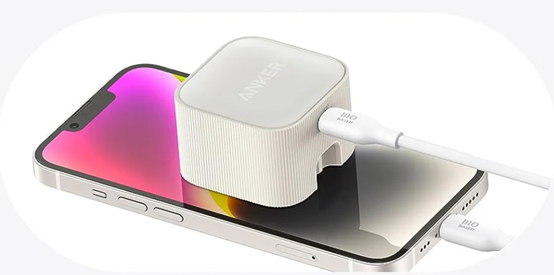USB-C Charger Compatibility: What You Need to Know
- الصفحة الرئيسية
- مدونة
- USB-C Charger Compatibility: What You Need to Know
Because of their speed, adaptability, and universal design, USB-C chargers are quickly taking the place of other chargers for numerous devices. But not every USB-C charger is created equal. Although a large variety of devices may use USB-C ports, performance may be impacted by variations in power output, charging methods, and cable quality. When selecting a charger for your gadget, it is essential to comprehend these distinctions. In order to provide you with the greatest charging experience, we will explain what USB-C is, how charger compatibility operates, and how to pick the best USB-C charger for your requirements in this blog.

What Is USB-C and Why Does It Matter?
USB-C is a worldwide connection standard that enables data transfer, power delivery, and video output. Its reversible shape and small size make it ideal for use with smartphones, laptops, tablets, and other devices. USB-C is important because of its flexibility and speed. It enables quicker charging and data transmission speeds than its predecessors, such as USB-A and micro-USB. As more manufacturers embrace USB-C, it has the potential to replace multiple cables and connectors, providing a more streamlined, efficient method for powering and transferring data between devices. Understanding USB-C is vital for improving device performance and guaranteeing compliance with your charging requirements.
Are All USB-C Chargers Compatible?
Power Delivery (PD) Explained
Power Delivery (PD) is a fast-charging technology that enables USB-C devices to charge at higher rates depending on their power requirements. Unlike typical chargers, which have a set output, PD-enabled chargers may vary the output power based on the device. This implies that a USB-C charger may offer a wide range of power, from 5W to 100W or more, to ensure efficient charging. To fully benefit from quicker charging speeds, you must first ensure that your device supports PD. PD substantially benefits devices such as laptops and cellphones, allowing for quicker recharging and increased energy efficiency.
Wattage and Charging Speed Differences
Wattage is the amount of power a charger can provide to a gadget. USB-C chargers are available in a variety of power levels, ranging from 5W to 100W or higher. The higher the wattage, the faster the gadget will charge, if it can handle the higher power output. For example, cellphones often require lower wattages (18W-30W), but laptops may require chargers rated at 60W or higher for efficient charging. To avoid undercharging or harming the battery, make sure the charger's wattage matches the specifications of your device. Using a charger with inadequate wattage might result in slower charging times.

How to Choose the Right USB-C Charger
Determine Your Device's Power Requirements
Recognize the power needs of your smartphone before selecting the best USB-C charger. The recommended charging wattage for your gadget may be found in its specs. The power requirements of computers, tablets, and smartphones vary. Slower charging periods or even possible damage may arise if you use a charger that isn't compatible with your device's power needs. A 10W charger won't supply enough power to charge a gadget that is intended to consume 45W. If you use more than one device, think about getting a charger that can securely charge several devices at once by providing varying power outputs.
Choose Certified Chargers and Cables
When selecting a usb c charger, always opt for certified products. Certified cables and chargers adhere to safety regulations and are made to function dependably with a variety of gadgets. Seek out chargers bearing certification symbols that attest to their compliance with USB standards, such as USB-IF (USB Implementers Forum). In addition to causing delayed charging, overheating, or even short circuits, low-quality, uncertified chargers and connections can harm your device. Purchasing approved, high-quality chargers helps you avoid the possible hazards of using fake or subpar accessories while also guaranteeing that your devices charge effectively and safely.
Consider Multi-Port Chargers for Travel
If you travel regularly or need to charge numerous devices at the same time, a multi-port USB-C charger might be really useful. Multi-port chargers allow you to charge numerous devices at the same time using a single outlet, making them excellent for travelers or anybody who owns several gadgets. Many of these chargers have Power Delivery (PD) technology, which ensures quick and efficient charging for all connected devices. When choosing a multi-port charger, make sure it has enough power output for each port and can handle simultaneous charging without overheating. This allows you to keep your gadgets powered while on the run.
Conclusion
USB-C chargers are necessary tools for keeping your devices charged, but it is critical to select the appropriate one. Understanding the differences in power delivery, wattage, and charger quality will help you ensure compatibility and peak charging performance. By choosing approved chargers that fit your device's power requirements and considering multi-port alternatives for convenience, you may avoid typical mistakes and enjoy quicker, safer charging. With the growing acceptance of USB-C across a variety of devices, making an informed pick can not only enhance your charging experience but also future-proof your tech setup.